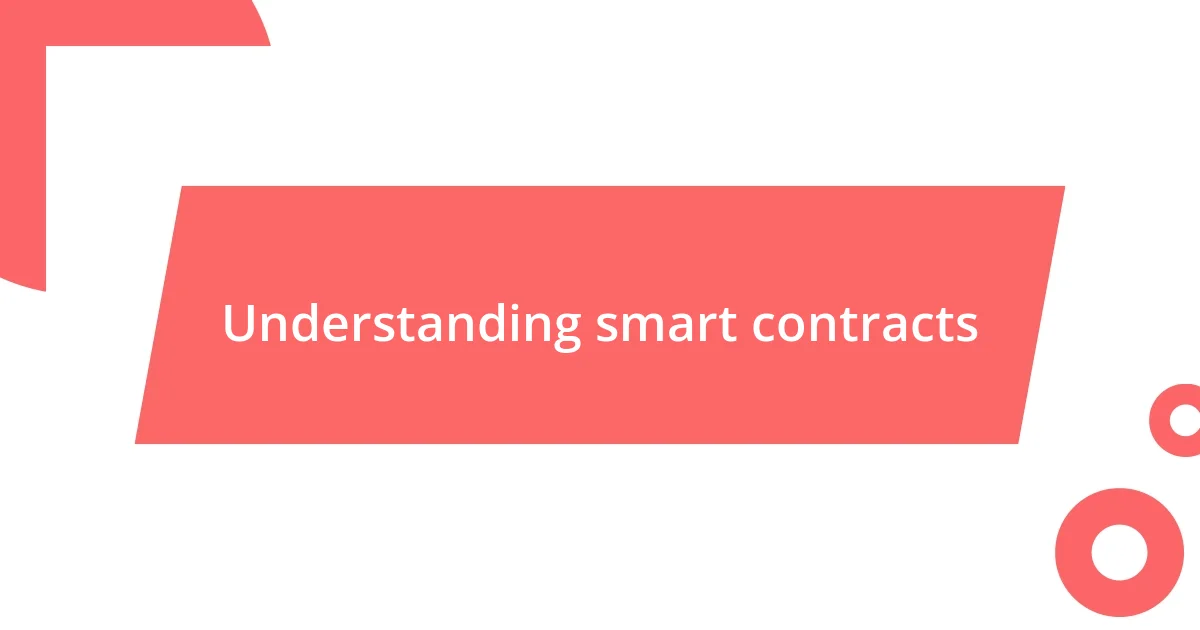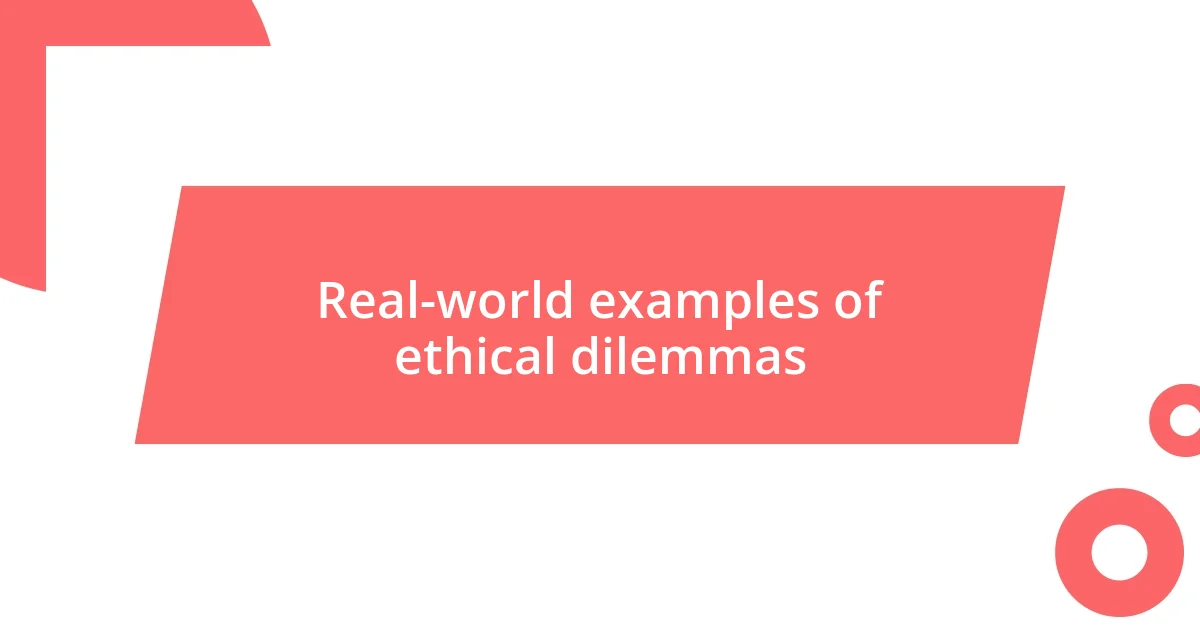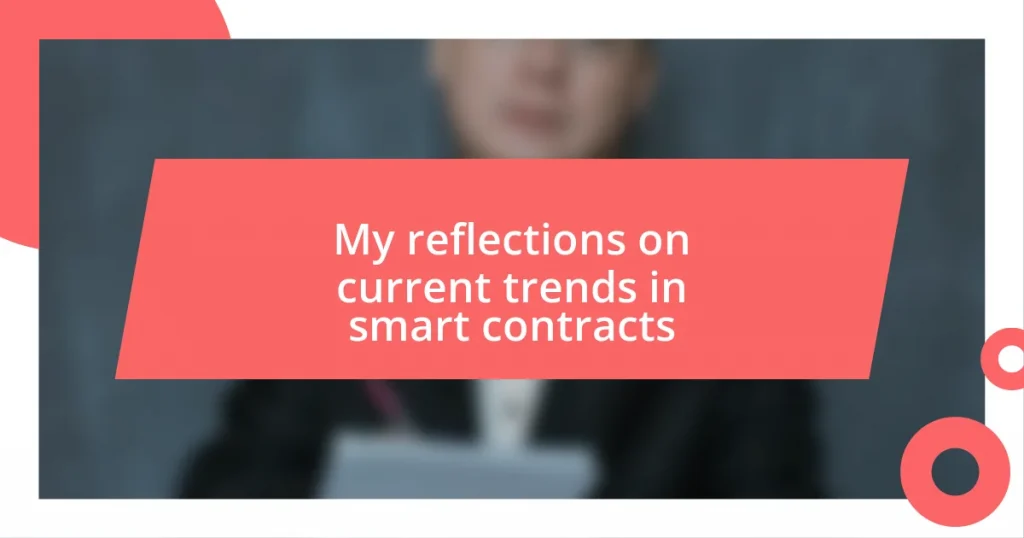Key takeaways:
- Smart contracts automate agreements on a blockchain but lack flexibility, potentially leading to ethical dilemmas in real-world scenarios.
- Rigidity in smart contracts can cause issues in unexpected situations, such as project delays, raising questions about fairness and the role of technology in accommodating human unpredictability.
- Ethical concerns arise from programming errors in smart contracts, particularly in financial systems and voting processes, highlighting the need for accountability among developers and users.

Understanding smart contracts
Picture a contract on a blockchain, automatically executing terms once conditions are met. This is essentially what a smart contract does: it’s a self-executing agreement with the terms written in code. I’ve often found myself wondering how revolutionary this could be for traditional industries—think about it! Wouldn’t you feel more secure knowing a contract is tamper-proof and free of intermediaries?
When I first encountered smart contracts, I was fascinated by their potential to cut through the red tape of traditional contracts. However, I also felt a bit overwhelmed by the technical jargon surrounding them. It’s amazing how something that looks so complex can actually streamline processes, but have you ever considered the nuances of these agreements? They lack the flexibility of traditional contracts, and that can lead to some ethical dilemmas.
In my experience, smart contracts require a deep understanding not just of technology, but of the human implications as well. For instance, if a smart contract malfunctions or if there are unforeseen conditions, who is held accountable? It’s a thought-provoking question that underscores the importance of ethics in this rapidly evolving field.

Real-world examples of ethical dilemmas
Think about a scenario where a smart contract is designed to release funds for a construction project only after certain milestones are completed. I once spoke with a contractor who faced a dilemma when unexpected weather delays set the project back. He passionately explained how the contract’s rigid terms offered no room for negotiation, forcing him to make tough decisions about wages while the work stalled. This scenario raises a crucial ethical question: Should technology accommodate human unpredictability, or does its rigidity pose risks to fairness?
Another striking example revolves around decentralized finance (DeFi) protocols. I recall a presentation on a lending platform where a bug in the code accidentally allowed users to withdraw excessive funds. The ensuing chaos led to significant financial losses for many. It struck me then—what happens ethically when a smart contract misbehaves? Is it ethical to expect users to bear the brunt of a programming error, or should developers shoulder some responsibility?
There’s also the use of smart contracts in voting systems. I remember discussing with a friend how transparent and tamper-proof these systems could be, and yet we couldn’t ignore the ethical dilemmas they pose. Imagine a scenario where a technical glitch results in the incorrect counting of votes. Who decides how to rectify this? The balance between technology’s reliability and the fundamental values of democracy is a delicate one, leaving us to question how we can ensure ethical integrity in these pioneering solutions.













